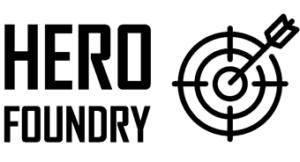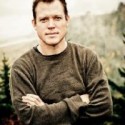It’s rare that I appreciate major blockbuster comic book films these days.
They’re fun, but rarely do they have deep life lessons for all of us, and they nearly never go on my list of classics to keep in mind for the kids one day.
But, just back from date night last night, I took my queen to see Wonder Woman, and we both loved it.
Admittedly, you can’t go wrong with a fit and powerful lead woman, so when Jam said she wanted to see Wonder Woman, it was easy to persuade me. But there was a tremendous amount of unexpected depth to this story.
Gal Gadot delivered a great performance as Princess Diana of Themyscira, an Amazonian trained to be an incomparable warrior, daughter of Hippolyta and (SPOILER ALERT) of Zeus, the king of the gods. How this immortal ends up walking into World War I — the “war to end all wars” — is a mystery I’ll leave you to discover for yourself if you haven’t seen this flick yet.

An unknowing demigoddess raised naive of her heritage, Diana only gradually discovers her incredible abilities as she develops courage and confidence in herself — a nice metaphorical message I approve of!
A great mix of moving drama, mild romance, action, and humor. Bravo to director Patty Jenkins!
The Heroine’s Journey in Wonder Woman
Beyond your typical movie reviews, it’s even more fun to analyze films from an archetypal perspective, incorporating what’s usually referred to as Jungian psychology.
From Lewis Carrol’s 1865 Alice in Wonderland, to the roaring success of the Harry Potter series, and The Hunger Games trilogy, the “Hero’s Journey” charts the stages and trials that the average Jane must face in order to discover her greatest self and share her exceptional gifts with the world.
It is the recurring story of those who choose to pursue greatness, of those who strive to make the world a better place, the greatest story ever told, a story older than time.
The heroine starts out as an ordinary person in the ordinary world, and receives a call to adventure. If she accepts the call, she must face internal and external trials, sometimes alone and sometimes with help from a guide…

This is what Joseph Campbell identified as the perennial “Hero’s Journey” monomyth — the cyclical hero’s path seen time and again throughout mythical stories passed down over the millennia, in spiritual traditions, in children’s bedtime stories, classic literature, and now in the fantasy and science fiction of today.
The long, difficult road of trials and challenges, as well as the heroine’s frequent brush with death, loss, or confrontation with evil, transform her for the better. In the end, the heroine must return to the “normal world” to share her extraordinary gifts with others, often facing life-threatening obstacles along the way.
“The heroic quest is about saying ‘yes’ to yourself and in so doing, becoming more fully alive and more effective in the world…. The quest is replete with dangers and pitfalls, but it offers great rewards: the capacity to be successful in the world, knowledge of the mysteries of the human soul, and the opportunity to find and express your unique gifts in the world.”
–Carol S. Pearson, author, Persephone Rising
While Wonder Woman isn’t for younger children, the two most important ladies in my life thoroughly enjoyed the film, and I look forward to sharing this film with any daughters I have one day, as a decent example of an empowering heroic female role model.
Fun trivia: at 75, Wonder Woman was recently named a U.N. Honorary Ambassador for the Empowerment of Women and Girls. Check Wikipedia for more on Wonder Woman’s character origins and history.
What Does It Mean to Be a Real-Life Hero?
“In times of radical uncertainty, it’s necessary that the Hero be born.
Because the Hero is the person who doesn’t deal with something specific, the Hero is the person that deals with Uncertainty itself. And that’s the Great Dragon of Chaos.
…What’s necessary is for the individual to become prepared for anything and everything, and the way that you do that is by developing your character.”
–Dr. Jordan Peterson, University of Toronto professor of psychology
The hero or heroine is the person who is not afraid to confront their own inner demons, to explore the world of the Unknown, discover hidden power and talents, slay dragons, and eventually return to their regular day-to-day life to help lead their community towards a better future.
We were all born Kings and Queens, but we must reclaim the power and authority that is rightfully ours to take charge of this magical life and sculpt it into something beautiful.
But what does it truly mean to be a real-life, modern hero? As the Buddha observed, the REAL enemy who every great hero must defeat is oneself, and all of humanity’s greatest myths are really metaphors for this (often painful) process of self-overcoming.
“In many indigenous traditions, a person seeking answers to questions would approach a medicine man or woman sitting by the fire and ask what they should do to resolve their dilemma. He or she classically would respond to this request by saying, “Let me tell you a story.” Moms, dads, mentors, and friends can do this, too…. In new situations, often what is needed is a new story that can help supply a map for the new journey and a toehold when that journey feels like climbing up a steep and dangerous mountain.”
–Carol S. Pearson
A New Map: Come Sit By the Fire and Let Me Tell You a Story
I’m bringing together a community to help me fine-tune my upcoming book, Chasing the Sun, and to help develop a new theoretical framework for personal growth based around the Hero’s Journey!
It’s a story about finding purpose, about building a life, a business, and a family, illustrated through travel memoirs and wild, never-before-told stories of some of my more questionable travel adventures around the world over the last 8+ years, business trials, failures, successes, and more.
It’s finally time to share a few of the most important lessons I’ve learned along the way.

 Rolf is one of the most accomplished travel journalists of our time, having reported from over 60 countries for major venues like National Geographic Traveler, The New Yorker, Outside, and the Travel Channel. He is a high-profile proponent of independent travel. His book
Rolf is one of the most accomplished travel journalists of our time, having reported from over 60 countries for major venues like National Geographic Traveler, The New Yorker, Outside, and the Travel Channel. He is a high-profile proponent of independent travel. His book 